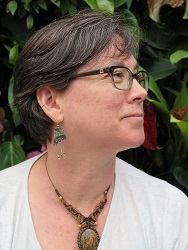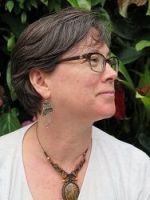
The SCRA Community Mini-Grants was founded in 2010 with the intention of supporting small, time-sensitive community-based projects that are consistent with SCRA’s mission, principles and goals. We are excited about sharing the great work being done by SCRA members and their community partners, and even happier to be able to highlight examples of this work and share them with the GJCPP readership. Below, 2014 Mini-Grant awardee Shelly Stratton, provides a snapshot of her project which involved building relationships and working collaboratively with African community leaders to implement the Healing and Rebuilding Our Communities (HROC) training with immigrant and refugee communities in New Hampshire, United States. The goals of the project were to:
Overall, her work represents the importance of working collaboratively in ways that build capacity to respond to community needs and promote collective, culturally-based healing within communities—specifically in African immigrant and refugee communities.
Background
New Hampshire has become home to a growing number of immigrants from across the continent of Africa. Many have come in search of education and job opportunities, while others arrive as refugees fleeing violence, persecution, poverty, and political instability. This relocation is not a choice for refugees who are unable to return to their homes, and who are seeking an opportunity to rebuild their lives with integrity. The journey is not easy, and the wounds of trauma and the profound loss of land, loved ones and familiar cultural environments can be overwhelming. However, resilience and hope for a better future is clear in the voices of recent immigrants.
This hope has fueled the determination of African leaders in New Hampshire who are working to connect diverse African communities and rebuild networks of support that reflect cultural values and traditions. These leaders have come to recognize the impact of trauma on their communities. Too often the tensions and conflicts in their countries, the wounds of past trauma, histories of oppression, and the complexities of adapting to life in New Hampshire get in the way of restoring familiar cultural values that reinforce strong collective identity, kinship, community connections and trust. Efforts to address challenges are further complicated by U.S. practitioners, and support staff, eager to influence pathways to healing with little understanding of the social and political complexity of community relationships, or the cultural values and patterns that contribute to resilience.
In the summer of 2012, I spent three weeks in Rwanda learning to facilitate the Healing and Rebuilding Our Communities (HROC) workshop. In New Hampshire, I was working with refugee families from Burundi and the Democratic Republic of Congo and felt this training would help me to better understand their cultural perspectives, including perspectives on trauma and healing. HROC was developed by Rwandans eager to address the entrenched impact of trauma resulting from the 1994 genocide. HROC workshops bring together survivors and perpetrators, who continue to live in the same communities, to learn about trauma and to build capacity for healing, resilience, and perhaps forgiveness. During the workshops participants explore the causes, symptoms, and impact of trauma through shared stories, developing new layers of understanding and expression while rebuilding community connections. HROC offers a collective response to collective trauma, recognizing not only the impact on individuals but also the exchange that takes place between individuals, families, and communities when trauma is experienced community-wide. HROC has been very successful in Rwanda, Kenya, Uganda, Central African Republic, Nigeria, Burundi, and the Democratic Republic of Congo.
When I returned to New Hampshire, I began the slow process of building trust with African immigrant and refugee communities hoping that HROC would be of interest. As interest took hold, African collaborators were clear that we must first consult the elders and leaders of identified African communities. It was important to gain trust and to go through the traditional channels of authority before making significant plans for the training. A steering committee worked hard to promote the workshop while I applied for and received the SCRA mini grant. When we finally gathered in 2014 for the HROC training there were participants from the Democratic Republic of Congo, Rwanda, South Africa, Côte d'Ivoire, and South Sudan.
Implementing the Healing and Rebuilding Our Communities (HROC) Training
The two-day interactive workshop began with activities promoting a sense of community and safety. Participants gained understanding of the range of perspectives in the room as stories were shared and activities engaged them in efforts to understand stress and traumatic stress. We explored the causes and symptoms of trauma, with our attention focused on the cultural perspectives and experiences of participants. Participants spoke of heartbreak, loss of connections, fear, sickness, aggression, isolation, and damage to community cohesion. As we talked about their personal and collective experiences we looked closely at the fine line that separates those who have been harmed (survivors) and those who have caused harm (perpetrators). Although personal stories of trauma were shared it was clear that participants also wanted to better understand the tensions that come from less obvious patterns of harm, such as gossip, jealousy, and divisions between ethnic and language groups. Interactive exercises, such as visually representing the web of trauma and the web of healing, encouraged participants to consider the impact of trauma on individuals, families and communities, as well as the interactions between these relationships that may perpetuate psychosocial struggles. Through these exercises we began to imagine possibilities for addressing many of the challenges that break hearts and damage the social fabric of families and communities.
The second day focused on trust and mistrust, unraveling complicated experiences and relationships, while reweaving hope. Many reported in their evaluations that this was the most powerful day of the training. The trust walk was an opportunity to experience being vulnerable as they walked blindfolded and in the hands of a silent guide. They also became the guide and used this experience to explore ideas about what is needed to build or repair trust. Following the trust walk we used the metaphor of a tree to explore the roots and the fruits of trust and mistrust. These discussions enhanced understanding of the many ways that mistrust or trust can be promoted by every day actions, as well as by traumatic events. As we wrapped up the training participants expressed hope that more workshops and community efforts would continue to reweave trust and resilience, and promote compassionate and culturally appropriate responses to the needs of their loved communities.
